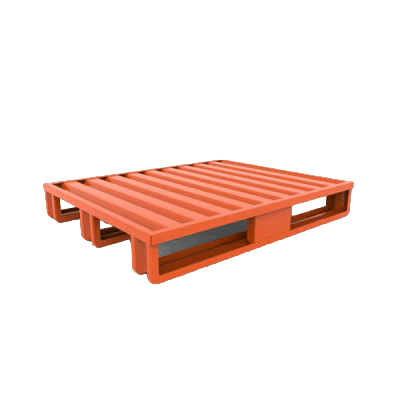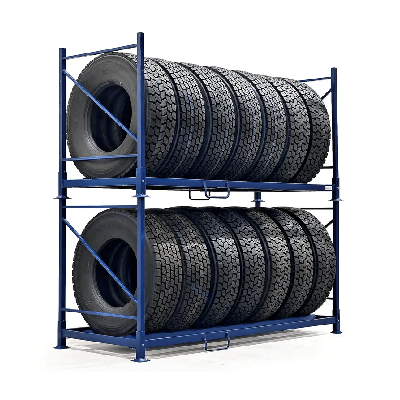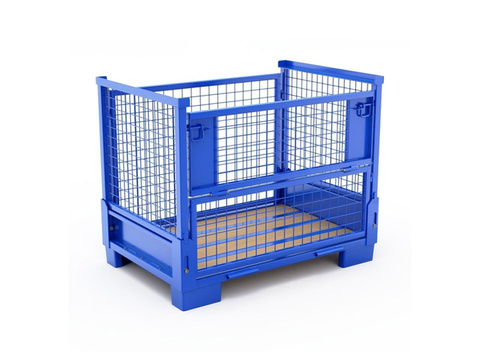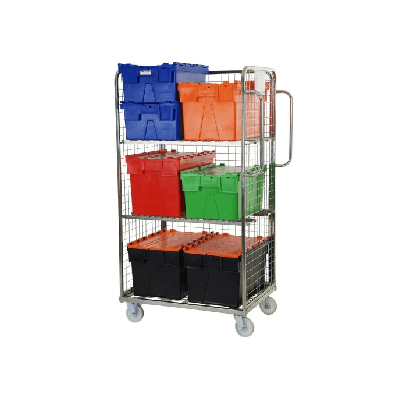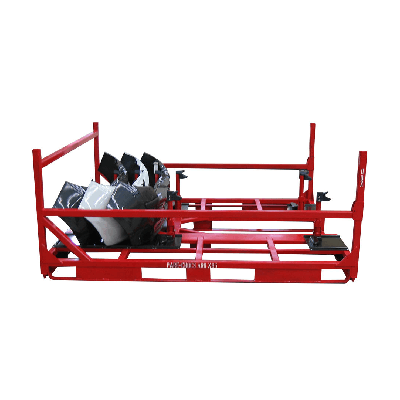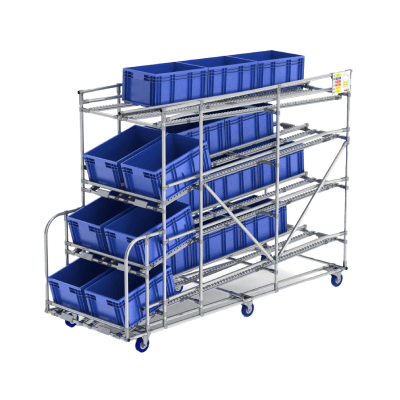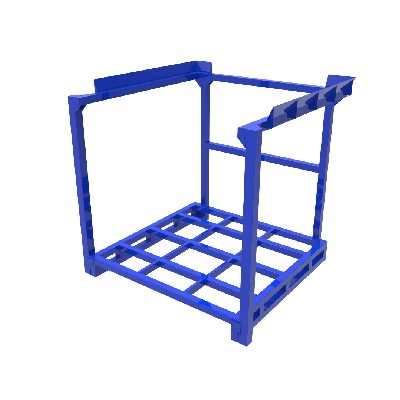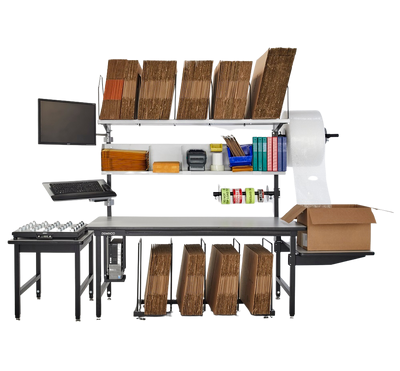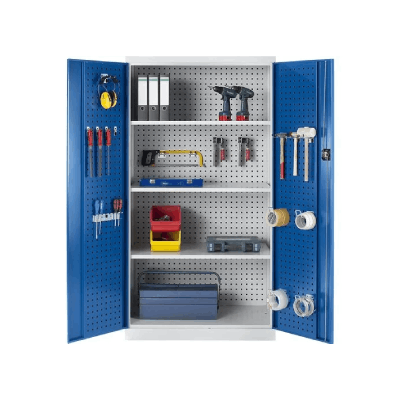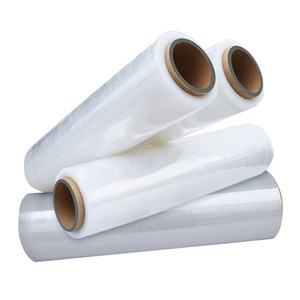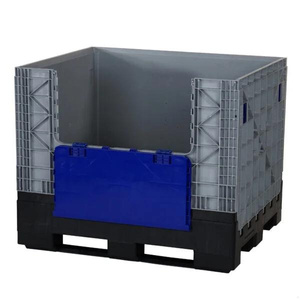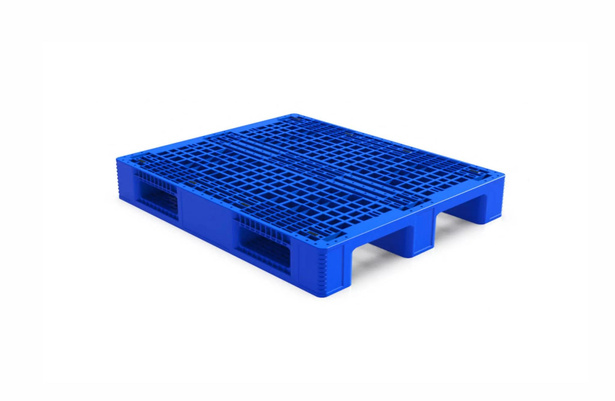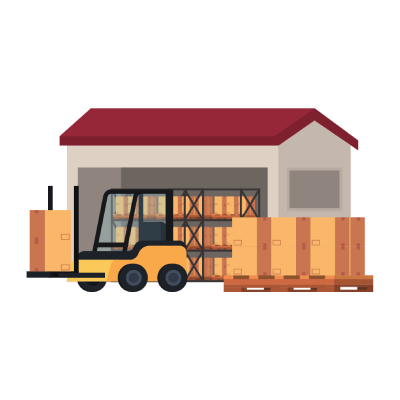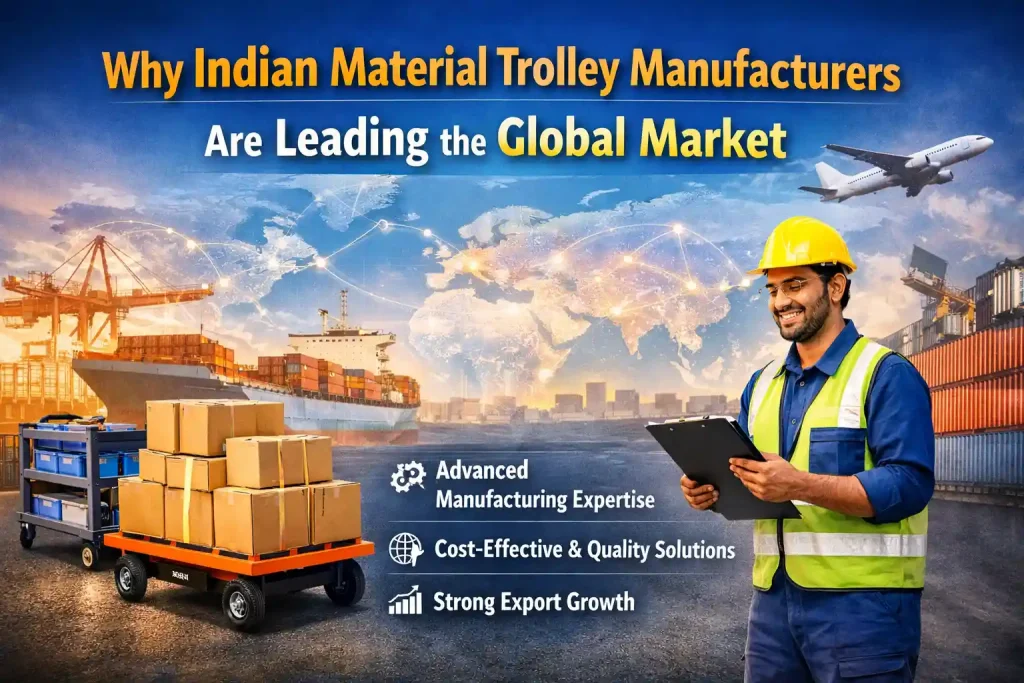In the fast-evolving world of global logistics, where supply chains stretch across continents and efficiency is the lifeblood of success, one often-overlooked component plays a surprisingly crucial role — the pallet. Traditionally made of wood or plastic, pallets have evolved with the growing needs of modern trade. Today, metal pallets are increasingly taking center stage due to their strength, durability, and adaptability.
But behind every high-quality metal pallet lies the innovation and expertise of a Metal Pallet Manufacturer. These manufacturers are not only reshaping how goods are stored and shipped but also helping businesses meet the rising expectations of a connected global economy.
This article explores how metal pallet manufacturers are revolutionizing logistics by prioritizing sustainability, technology, customization, and compliance — ensuring that global supply chains remain seamless, safe, and future-ready.
Table of Contents
ToggleThe Rising Importance of Metal Pallets in Global Supply Chains
As international trade expands, logistics systems must handle larger volumes, longer distances, and stricter safety standards. Traditional wooden pallets, while inexpensive, often fail under heavy use or exposure to extreme environmental conditions. Plastic pallets, though lighter, may lack the load-bearing strength and recyclability needed for high-demand applications.
Metal pallets bridge this gap. They are stronger, resistant to moisture and pests, easier to sanitize, and longer-lasting than their wooden or plastic counterparts. For industries such as pharmaceuticals, food processing, electronics, and aerospace, these advantages translate directly into lower costs, improved safety, and higher efficiency.
In essence, the metal pallet has become a symbol of industrial resilience — and its manufacturers are the driving force behind this global transformation.
Innovation and Engineering: The Backbone of Modern Metal Pallet Manufacturing
The world’s best Metal Pallet Manufacturer knows that innovation is not optional; it’s essential. Today’s logistics industry demands pallets that are lighter, stronger, and more adaptable than ever before.
1. Advanced Material Technology
Manufacturers are investing heavily in new metal alloys and coatings to improve pallet performance. Lightweight aluminum pallets, for instance, are gaining popularity for air cargo, while galvanized steel pallets offer unbeatable corrosion resistance for maritime shipping.
These materials are engineered to withstand extreme conditions — from subzero cold-chain environments to the scorching heat of desert logistics hubs — without losing structural integrity.
2. Smart Design and Structural Efficiency
Modern metal pallet design goes far beyond basic fabrication. Through computer-aided design (CAD) and finite element analysis (FEA), engineers optimize every beam, weld, and surface for maximum load distribution.
Some designs incorporate foldable or nestable features for efficient storage and return transport. Others include anti-slip surfaces, reinforced corners, and modular components to fit different warehouse systems.
3. Integration of Automation and Robotics
Automation is changing how metal pallets are produced. Robotic welding systems ensure precision and consistency, reducing human error while speeding up production. Automated quality checks using sensors and AI algorithms help manufacturers detect flaws early, ensuring every pallet meets international standards.
By combining automation with skilled craftsmanship, manufacturers maintain both scalability and quality control — two critical pillars of global logistics reliability.
Sustainability: Building a Greener Global Supply Chain
Sustainability has become a defining factor in logistics. Companies across industries are under pressure to reduce carbon emissions, minimize waste, and demonstrate environmental responsibility. Metal pallet manufacturers are playing a pivotal role in this transition.
1. 100% Recyclable Materials
Unlike wooden pallets that often end up in landfills, metal pallets are fully recyclable. When they reach the end of their lifecycle, the metal can be melted down and reused without loss of quality. This circular economy approach minimizes environmental impact and reduces raw material demand.
2. Lower Lifecycle Costs
Although metal pallets require a higher initial investment, their long lifespan and minimal maintenance lead to lower total ownership costs. They resist cracking, splintering, and microbial growth — all common issues with wood and plastic alternatives.
Over time, this durability reduces waste and transportation inefficiencies, directly contributing to greener logistics operations.
3. Energy-Efficient Production
Modern manufacturing facilities are increasingly powered by renewable energy and employ energy-efficient processes. From laser cutting to eco-friendly coatings, each step is designed to reduce emissions and conserve resources.
Through these measures, metal pallet producers align with global sustainability standards such as ISO 14001, helping their clients meet their own ESG (Environmental, Social, and Governance) goals.
Meeting Global Standards and Compliance
International logistics involves navigating a complex network of regulations, from export packaging laws to hygiene standards. Metal pallet manufacturers must ensure their products comply with all relevant certifications to facilitate smooth cross-border movement.
1. Food and Pharmaceutical Safety Standards
In sectors where contamination is a concern, metal pallets shine. They can be sterilized easily and are free from pests and chemicals, making them compliant with FDA, HACCP, and ISO standards.
Manufacturers work closely with regulatory bodies to design pallets that meet these hygiene requirements — ensuring that pharmaceuticals, food products, and medical supplies travel safely and legally across borders.
2. Fire Safety and Structural Regulations
Unlike wood, metal pallets are non-flammable and meet stringent fire-safety standards, which is a growing priority in warehousing and manufacturing facilities. Some countries even require the use of non-combustible pallets in certain environments, giving metal pallets a distinct advantage.
3. Traceability and Certification
To meet modern compliance demands, metal pallet manufacturers incorporate unique serial numbers, RFID tags, or QR codes for tracking. This allows for complete traceability throughout the supply chain — from production to final delivery — enhancing accountability and transparency.
Customization: Tailoring Pallets to Industry Needs
Global logistics isn’t one-size-fits-all. Different industries have distinct requirements for load capacity, dimensions, and handling methods. Leading metal pallet manufacturers recognize this and offer extensive customization options.
1. Sector-Specific Designs
- Automotive: Heavy-duty steel pallets built to transport engines and vehicle components safely.
- Pharmaceutical: Hygienic aluminum pallets designed for cleanroom compatibility.
- Food & Beverage: Corrosion-resistant pallets with smooth, easy-to-clean surfaces.
- Aerospace: Lightweight yet ultra-strong designs suitable for high-value cargo.
2. Adaptability for Automation and Warehousing
With the rise of automated warehouses and robotic forklifts, pallets must integrate seamlessly with machines. Manufacturers now produce pallets with standardized dimensions and sensor-friendly surfaces, ensuring compatibility with conveyors, AGVs (Automated Guided Vehicles), and robotic arms.
3. Branding and Identification
Beyond function, manufacturers also help companies strengthen their brand identity by offering custom colors, embossed logos, and labeling. This not only aids in asset tracking but also reinforces corporate visibility across logistics networks.
Digital Transformation: Smart Pallets and Data Integration
The digital era has redefined what a pallet can do. No longer just a static platform for carrying goods, metal pallets are becoming intelligent assets that communicate data in real time.
1. IoT and RFID Integration
Many manufacturers now offer pallets equipped with RFID chips, GPS modules, or IoT sensors that provide valuable data such as location, temperature, humidity, and load weight. This data helps logistics managers monitor shipments, prevent losses, and improve overall efficiency.
2. Predictive Maintenance and Asset Management
Smart pallets can detect wear and tear or impact damage, sending alerts before problems arise. This proactive approach to maintenance minimizes downtime and reduces replacement costs.
3. Data Analytics for Optimization
By collecting and analyzing pallet usage data, companies can make informed decisions about inventory management, fleet utilization, and logistics planning — turning a once-static component into a source of actionable insights.
Challenges Faced by Metal Pallet Manufacturers
Despite their advantages, metal pallet producers face challenges that require constant innovation and strategic planning.
- Rising Raw Material Costs: Fluctuating steel and aluminum prices affect profitability, pushing manufacturers to explore alternative materials and efficiency gains.
- Transportation Costs: The higher weight of metal pallets (compared to plastic) can impact shipping expenses, prompting the development of lighter designs.
- Market Education: Many industries still associate pallets with wood, so manufacturers must educate customers about the long-term value and sustainability of metal options.
By addressing these challenges through R&D, partnerships, and awareness campaigns, manufacturers continue to strengthen their role in modern logistics.
The Future of Metal Pallets in Global Logistics
As e-commerce and international trade continue to grow, the logistics sector will need solutions that balance durability, traceability, and environmental responsibility. Metal pallets — backed by continuous innovation and smart technology — are poised to meet these demands.
Future trends may include carbon-neutral production methods, AI-optimized supply chains, and standardized global pallet tracking systems. The next decade could see metal pallets become not just a logistical tool but a strategic asset for global industries.
Conclusion:-
From raw material sourcing to real-time shipment tracking, metal pallet manufacturers are at the heart of logistics innovation. They’re helping businesses ship smarter, reduce waste, and adapt to a rapidly changing global market.
Whether through sustainability, smart technology, or engineering excellence, the best Metal Pallet Manufacturer understands that every pallet is more than a product — it’s a promise of reliability, safety, and progress.
As industries worldwide seek stronger, greener, and more intelligent supply chain solutions, one name stands out for its commitment to quality and innovation: Kole Pallet — a brand that continues to redefine what’s possible in global logistics.
Frequently Asked Questions:-
1. What makes metal pallets better than wooden or plastic pallets?
- Metal pallets offer superior strength, durability, and resistance to moisture, pests, and fire. Unlike wooden or plastic pallets, they don’t warp, crack, or absorb contaminants. This makes them ideal for heavy-duty industries, long-distance shipping, and environments that require strict hygiene standards such as pharmaceuticals and food processing.
2. Are metal pallets environmentally friendly?
- Yes. Metal pallets are 100% recyclable and have a much longer lifespan than wooden or plastic pallets. They can be reused for years without losing structural integrity, and when they reach the end of their lifecycle, the metal can be melted down and repurposed — supporting a sustainable, circular economy.
3. Which industries benefit most from using metal pallets?
- Industries that require strength, cleanliness, and durability benefit the most. These include aerospace, automotive, food and beverage, pharmaceuticals, electronics, and heavy manufacturing. Each sector can also have custom-designed pallets to meet its specific load and compliance requirements.
4. How are modern metal pallet manufacturers integrating technology?
- Leading metal pallet manufacturers are adopting advanced manufacturing technologies such as robotic welding, CAD design, and IoT integration. Smart metal pallets now come equipped with RFID tags and sensors for real-time tracking, helping logistics teams improve visibility, safety, and efficiency throughout the supply chain.
5. Why should businesses consider Kole Pallet for their logistics needs?
- Kole Pallet stands out for its commitment to quality, innovation, and sustainability. The company designs high-performance metal pallets tailored to various industries, ensuring compliance with international standards. With Kole Pallet, businesses can achieve stronger, safer, and more sustainable logistics operations.

